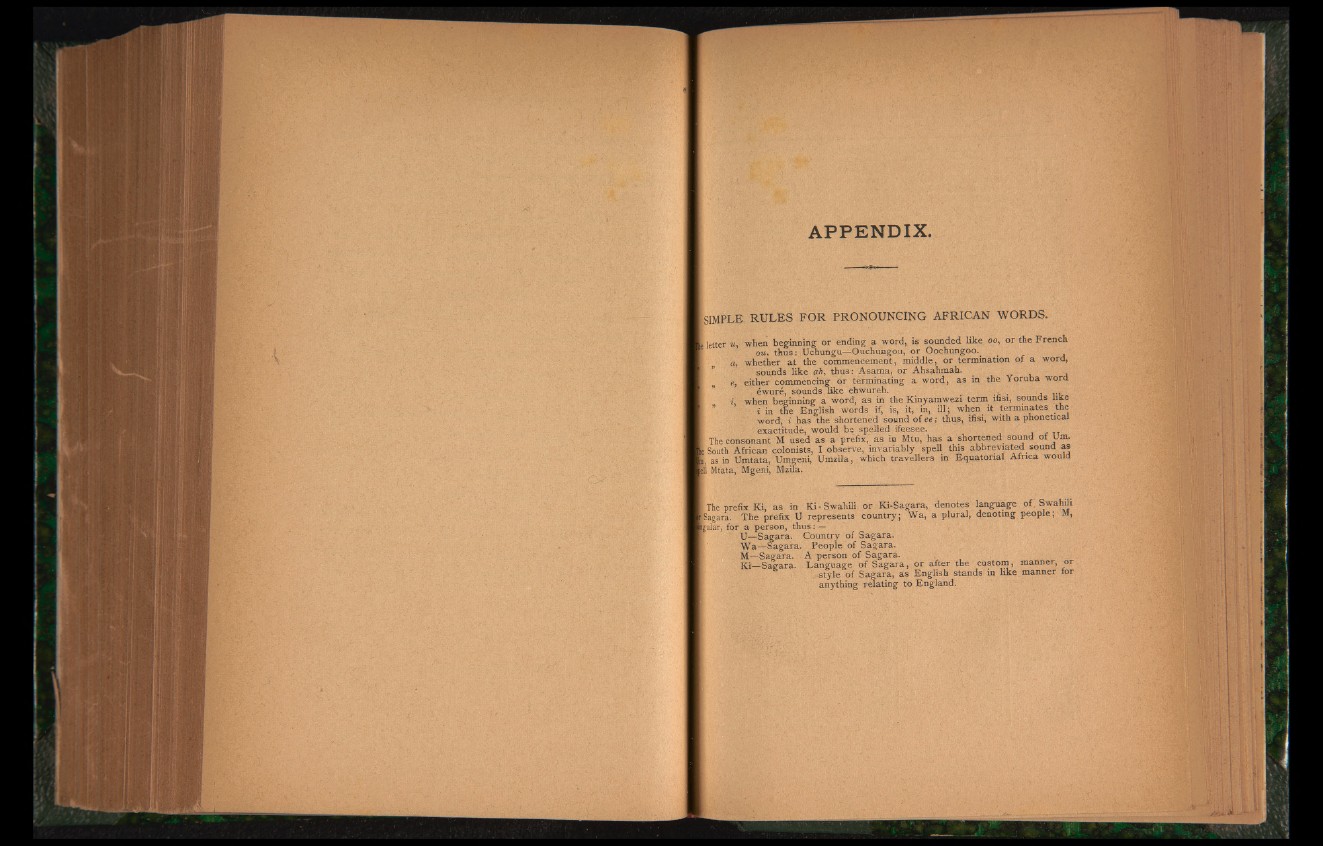
APPENDIX.
SIMPLE RULES FOR PRONOUNCING AFRICAN WORDS.
letter u, when beginning or ending a word, is sounded like oo, or the French
ou, thus: Uchungu— Ouchungou, or Oochungoo.
a, whether at the commencement, middle, or termination of a word,
sounds like p f thus: Asamaj or Ahsahmah. ,
B e, either commencing or terminating a word, as in the Yoruba word
ewur£, sounds, like ehwureh. ^ t
■; when beginning a word, as in the Kinyamwezi term ifisi, sounds like
¿ in the English words if, is, it, in, ill; when it terminates the
word, i has the shortened sound of ee; thus, ifisi, with a phonetical
exactitude, would be spelled ifeesee. .
The consonant M used as a prefix, as in Mtu, has a shortened sound ol Um.
f South African colonists, I observe, invariably spell this abbreviated sound as
f as in Umtata, Umgeni, Umzila, which travellers in Equatorial Africa would
;J1 Mtata, Mgeni, Mzila.
.The prefix Ki, as in Ki-Swahili or Ki-Sagara, denotes language of. Swahili
feagara. The prefix U represents country; Wa, a plural, denoting people; M,
|ular, for a person, thus: —
U—Sagara. Country of Sagara.
Wa—Sagara. People of Sagara.
M—Sagara. A person of Sagara.
Ki—Sagara- Language of Sagara, or after the custom, manner, or
-Style of Sagara, as English stands in like manner for
anything relating to England.